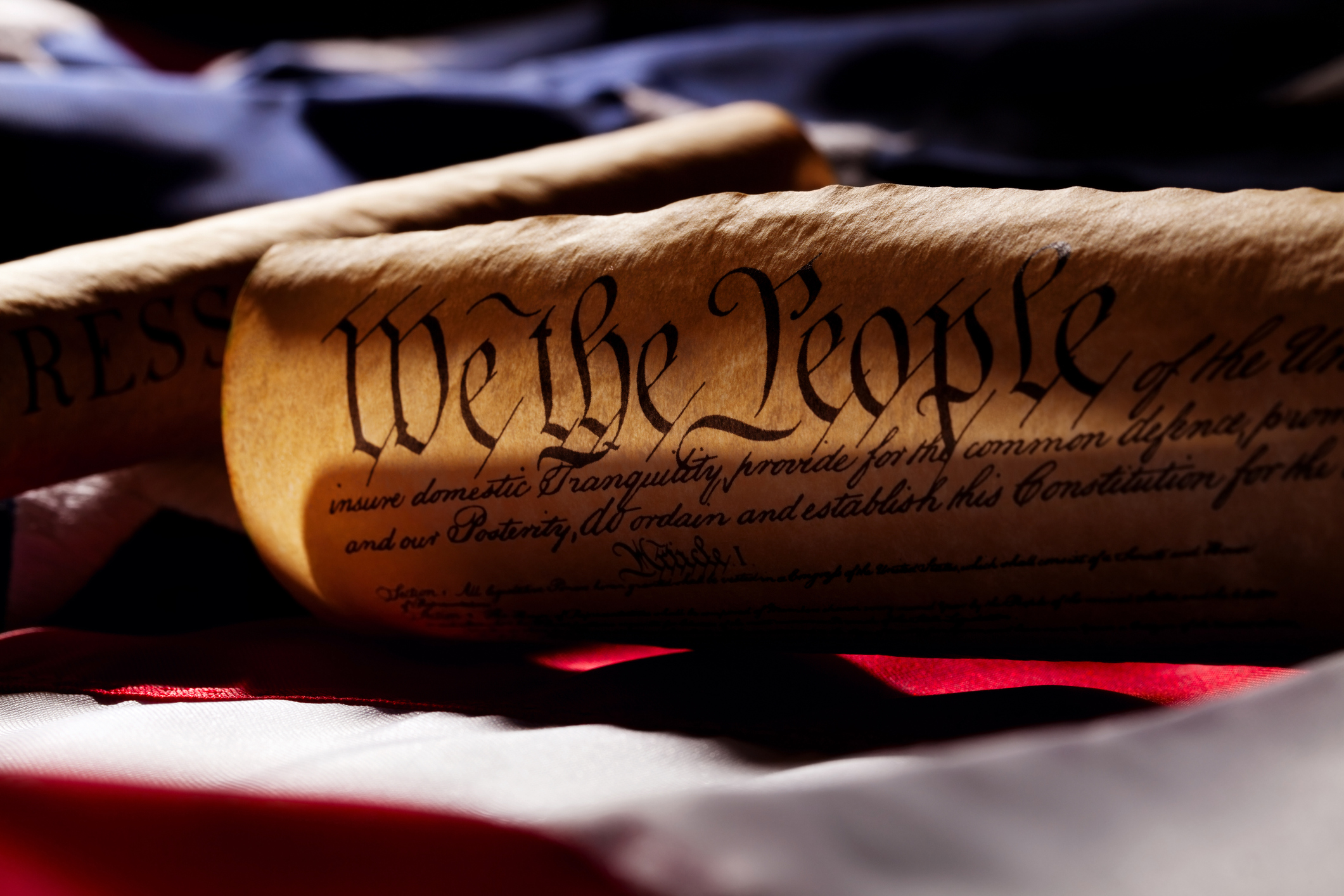Destroying the possibility of criticism is the death of liberty.
The Free Speech Facade

The Left’s support for civil liberties has always been contingent on its own relative strength or weakness.
In a thoughtful commentary on “The New Normal and the Assault on Reason,” Glenn Ellmers makes this historical observation:
For several centuries, at least since John Stuart Mill, the Left has defined itself by its commitment to freedom of speech. This was practically the sine qua non for calling oneself a liberal. Yet some time around 2019-20, in the historical blink of an eye, free speech was simply . . . dismissed. It became obligatory on the Left to support systematic control of our public discourse by a handful of massive tech companies, in cooperation with the government.
Professor Ellmers is correct that the Left, especially that part of it that has described itself as democratic, has traditionally flaunted its “commitment to free speech.” The American Civil Liberties Union, since its founding in 1920, has urged its members “to defend and preserve the individual rights guaranteed by the Constitution and the laws of the land.” And some of us are old enough to remember when the ACLU came out in support of the right of Nazis to march in the heavily Jewish community of Skokie, Illinois. A defense of that march, which took place in 1978, was interpreted as the reductio ad absurdum of the Left’s commitment to expressing unconventional views, a freedom that was to be exercised even if it produced an inexcusably insensitive outcome.
Most college-educated Americans of my generation were exposed to another statement of the supposed dedication to freedom among progressives. We had to read John Stuart Mill’s On Liberty (1859), one of the most oft-quoted defenses of freedom of opinion in the Western world. Chapter Two includes these words about freedom of the press:
The time, it is to be hoped, is gone by, when any defence would be necessary of the “liberty of the press” as one of the securities against corrupt or tyrannical government. No argument, we may suppose, can now be needed, against permitting a legislature or an executive, not identified in interest with the people, to prescribe opinions to them, and determine what doctrines or what arguments they shall be allowed to hear.
The Englishman who wrote those lines represented the Left of his time. He advocated an expanded franchise that included women, favored the emancipation of slaves in America, and supported the use of state power to redress economic inequalities. Mill also famously opposed any restriction on having people express their opinions, and apparently believed that even views that had been to all intents and purposes refuted, might still contain a grain of truth, and needed to be discussed, as long as there were those around who were willing to present those positions.
The populist conservative Willmoore Kendall famously attacked Mill in the 1950s for previewing the liberal fetish of free speech. Kendall regarded Mill’s defense of “the open society” as “inseparable from his assault on truth.” It was a defense that left no room for religion, tradition, and other sources of authority. Mill’s “all questions-are-open-questions-society” could not even recognize “truth, itself with all its accumulated riches to date,” because it was grounded in relativism. It was an attempt to escape from both the quest for truth and any acknowledgement of those truths that our civilization embodies. Kendall underscored what became a leitmotiv in the post-World War Two conservative reaction to the cultural and political Left. Significantly, critiques of relativism punctuated the writings of Leo Strauss, William F. Buckley, Russell Kirk, and other thinkers of the period, though their formulations were not always the same.
Strauss’s relevant comments were a recognizable extension of a scholarly discussion in Germany, one that started with Max Weber in the late nineteenth century and addressed the nature of values. Although Strauss famously assaulted Weber’s fact-value distinction, he nonetheless held on to Weber’s understanding of values as an expression of the individual will. A person posits values as an individual judgment that he expects others to agree with and act on. If that person decides to privilege a particular value, say tolerance, he may then change his mind and prefer intolerance to his earlier, now rejected value. In either case I am expressing an individual preference. In his critique of relativism, Strauss was indicating that values are arbitrary individual constructions, unless grounded in an ethical tradition or, even better, ethical reasoning that communities accept and are willing to live by.
In Natural Right and History, Strauss also attacks the escape from moral judgment among social scientists and singles out his fellow Central European émigré, the legal scholar Hans Kelsen, for treating all forms of government at least by implication as morally equivalent. Without getting into this censure (with which I have elsewhere disagreed), I would note that Strauss was not here attacking the Left specifically. His comments were directed against social scientists and therefore may not relate to the topic at hand. In any case, Strauss’s value critique may be the stronger part of his assessment of relativism.
Kendall attacked relativism in his own way. He saw the relativism he thought was reflected in Mill’s “open society” and on the mid-twentieth-century American Left as an acid eating away at America’s onetime moral consensus, founded on biblical morality and common law. Relativists were destroying what was left of an America held together by a shared sense of the Good. Although the two critiques of relativism were not identical, Kendall eventually became a devotee and regular correspondent of Strauss. (Kendall’s famous essay “Conservatism and the Open Society,” which appeared as Chapter Six in The Conservative Affirmation, may offer his most extensive polemic against Mill and the Left’s value-relativism.)
While we may still find merit in the axiological critique of values presented by Strauss and his predecessors, it may be harder to accept Kendall’s contention that the Left in its essence is open to all points of view. The Left has had its own conception of Truth, but, unlike the traditional Right, has carefully disguised it. Maurice Cowling and Linda Rader, both Mill-scholars, have shown how their subject planned On Liberty as a preparatory step to leading humankind into a new scientific age free of religious superstition. Already in the introduction to this work, we are presented with Auguste Comte’s three stages of human development, culminating in an Age of Positivism. Mill may have believed that we could afford to promote open discussion because such a situation would lead to the positivist future that he envisaged for the entire human race.
William Donahue’s The Politics of the American Civil Liberties Union (1985) is the perfect eye-opener for anyone who is deluded enough to believe that the ACLU has ever been entirely or mainly about what it claims to be defending. From the beginning, as Donahue carefully documents, the ACLU was packed full of Communist sympathizers, whose primary concern was legalizing speech for the revolutionary Left. Defending the expressive rights of Nazis or the Klan was mostly a diversionary tactic. It helped create an appearance of balance so that the ACLU could do what interested its staff and its donors the most—stripping the public square of religious traditions, legitimizing left-wing subversives, and rushing to defend those who made obscene attacks on traditional religious institutions. Everything else, Donahue maintains, was window dressing. Though there have been ACLU officers, like Nadine Strossen, who have opposed the organization’s efforts to enforce Political Correctness, they have been rare exceptions, particularly in recent years. And they certainly have not influenced where the ACLU is now, which is behind every culturally leftist plan being pushed by the Democratic Party.
There were moderate center-leftists in the past, like Hubert Humphrey and Henry Jackson, but such moderate reformers have ceased to matter for grasping what the Left has become in the present age. Although past center-leftists may have worked to increase public administration, which was far from a blessing, and may have underestimated the effect of the social policies they supported, they were not openly contemptuous of freedom. They were also hostile to Communism and supported the struggle against Soviet expansion; not all advocates of an expanded welfare state were intent on destroying our inherited right of dissent.
That said, the current Left’s desire for “systematic control of public discourse” may not be a dramatic departure from where many leftists stood in the past. The totalitarian Left is just tightening its grip on the rest of us while no longer feeling obliged to maintain the civil liberty stance that it assumed in the 1950s. When Kendall and other American conservatives active seventy years ago concluded that the Left wanted the kind of society that is open to all points of view, they were generalizing by looking at a Left then under assault from anti-Communists. It was then in the interest of the Left to defend dissent. The question that these conservatives might have addressed more thoroughly was how the Left would have behaved once it achieved an unassailable position of power. The Left attacked the House Committee on Un-American Activities when it investigated suspected Communists and Communist agents in the 1940s and early 1950s. But with few exceptions, these “civil libertarians” hardly protested when the same committee went after those suspected of fascist sympathies, including Christian pacifists, in the preceding decade. The ACLU never really stood for the kind of open society that Kendall and Buckley mocked.
An obvious reason for this, in my considered view, is that the present Left and earlier Lefts have not been relativistic in the sense of having no moral orientation. While that orientation or disposition may not appeal to most readers of this website, it does suggest a definable moral stance. In pursuit of its morality, the Left has no qualms about disarming its opponents, either by guile or more recently in the West, by force.
That’s because the Left wishes to abolish the Western past, which it regards as evil. This past is evil because Western societies until recently attributed unequal identities to different groups of people, and they supposedly still oppress the virtuous of the Earth, who are non-Westerners or victims of the West. This may not offer a serious example of moral reasoning, but it also does not betoken relativism or the wishy-washiness that Kendall associated with his political opponents. The Left is venting moral fury on what it perceives as an unjust situation and against those who are held responsible for real or imagined inequality. This outrage together with its war against civilization renders the Left, certainly in its present form, utterly destructive.
The American Mind presents a range of perspectives. Views are writers’ own and do not necessarily represent those of The Claremont Institute.
The American Mind is a publication of the Claremont Institute, a non-profit 501(c)(3) organization, dedicated to restoring the principles of the American Founding to their rightful, preeminent authority in our national life. Interested in supporting our work? Gifts to the Claremont Institute are tax-deductible.
A conservative revolution is in order.
The “common good” didn’t mean what its modern proponents want it to mean.



